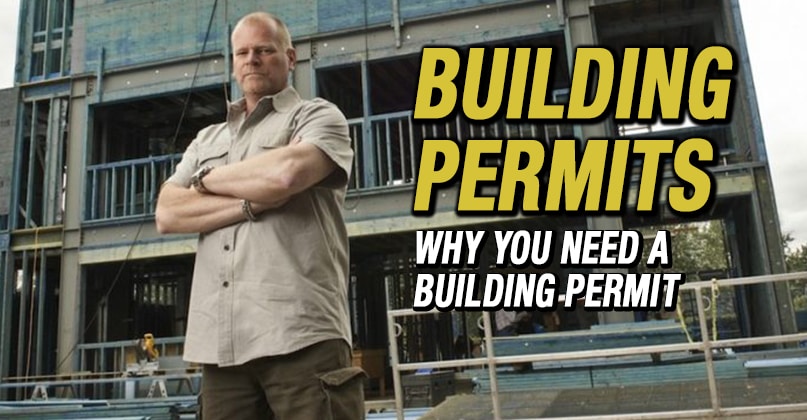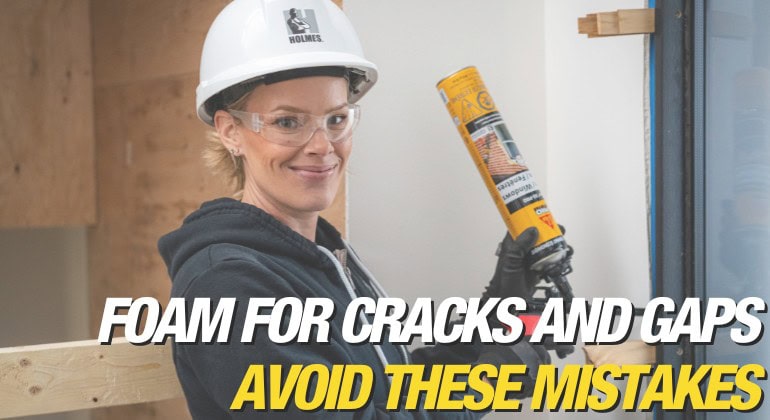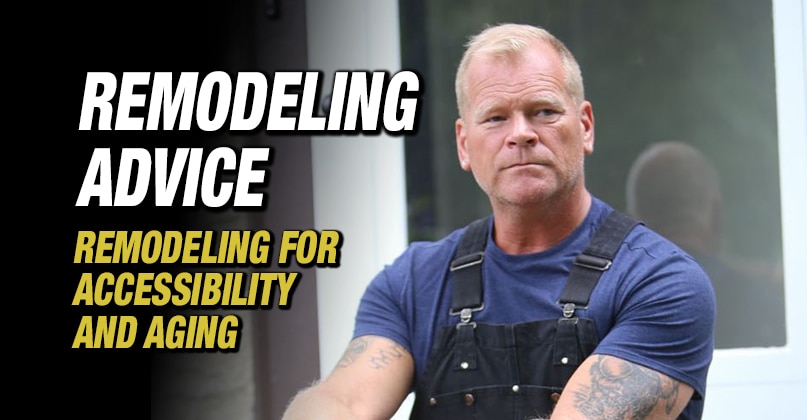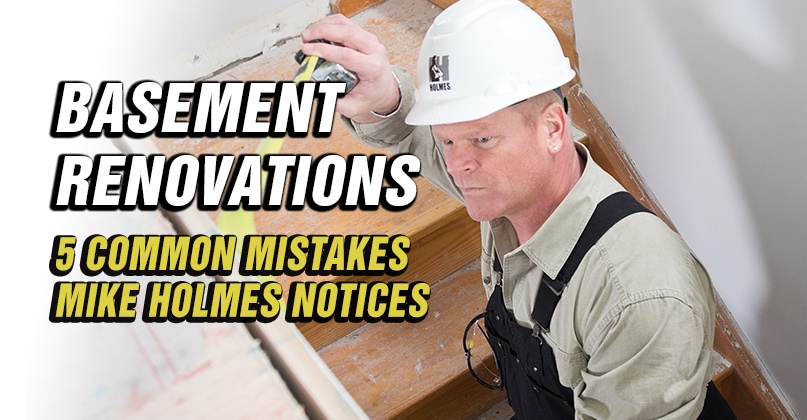When it’s time to replace your HVAC system, you have several options, each with its own benefits. Choosing the right HVAC system depends on your home’s size, climate, energy needs,...
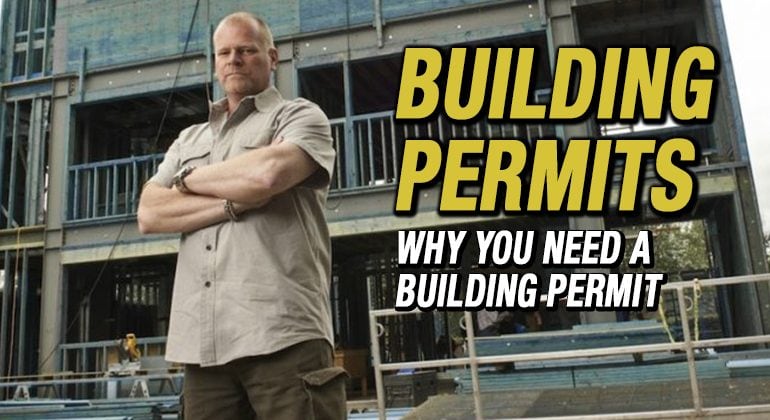
Why You Need A Building Permit
By Mike Holmes
Mike’s Advice / Home Renovation
Monday, August 2nd, 2021 @ 2:46pm
I get a lot of emails from homeowners asking me if they need to get a building permit for their home improvement project. Sometimes they tell me their contractor told them they didn’t need one. Why? Because it’s the homeowner’s responsibility to get one, not the contractor’s.
You’ll require a building permit for all types of work, including electrical work, HVAC, plumbing, and structural changes. Not sure if your job needs one? It costs nothing to call and ask.
I’ve met many homeowners who have watched a few YouTube videos or TV shows and think they can tackle taking down a wall or renovating a basement. That scares me.
Do you know what can happen if you ‘just’ take down that little bit of a wall to ‘open up’ the room? I’ll tell you—your floors can start to sag and slope. Your roof can fall in. Trust me, I’ve seen this stuff.
Most construction and renovation disasters are a result of people thinking they know what they are doing and failing to consult a professional—like a building inspector. You can do some serious damage to your home. I’ve even come across contractors who might try to avoid local building code inspections. This shows that they either don’t care to do the job right, or they don’t know what they are doing.
RELATED
Why do you need a building permit?
A building permit gives you formal permission to build your project. It says your plans comply with the Building Code, local zoning by-laws and any other laws or regulations that might apply.
Why do you need to obtain a permit? To make sure things are done properly, built soundly. It’s one of the few assurances you have, that your home is safe.
A lot of people grumble, complaining that the cost of the permit is just ‘taxation’ or another cash grab by the municipal government. That sounds like a line that a shady contractor started. Try saving a few pennies now on permits and it could cost you thousands in fines and repairs later.
Building codes are complicated and are open to a degree of interpretation. Because of that, even some of my own work has needed modifications after an inspection. In this line of work, it would be arrogant to say that your work doesn’t need a second qualified opinion. It always does.
A permit means peace of mind
What do you get for your money? You get peace of mind, knowing the job is legal, that it’s being inspected and is being done properly. You get the professional expertise and experience of the city’s staff who will review your plans for building code compliance and make sure the renovation works on paper, as well as on-site inspections at the proper building stages. And most important—once a permit is inspected and passed, the government assumes responsibility for that work as being done correctly.
But what if you don’t get a permit?
If it’s discovered—either by a random check or a concerned neighbor turns you in, the city can issue a stop-work order forcing your contractor to cease until a proper permit is obtained. There could be prosecution or a fine issued. You might even be ordered to remove the work already done.
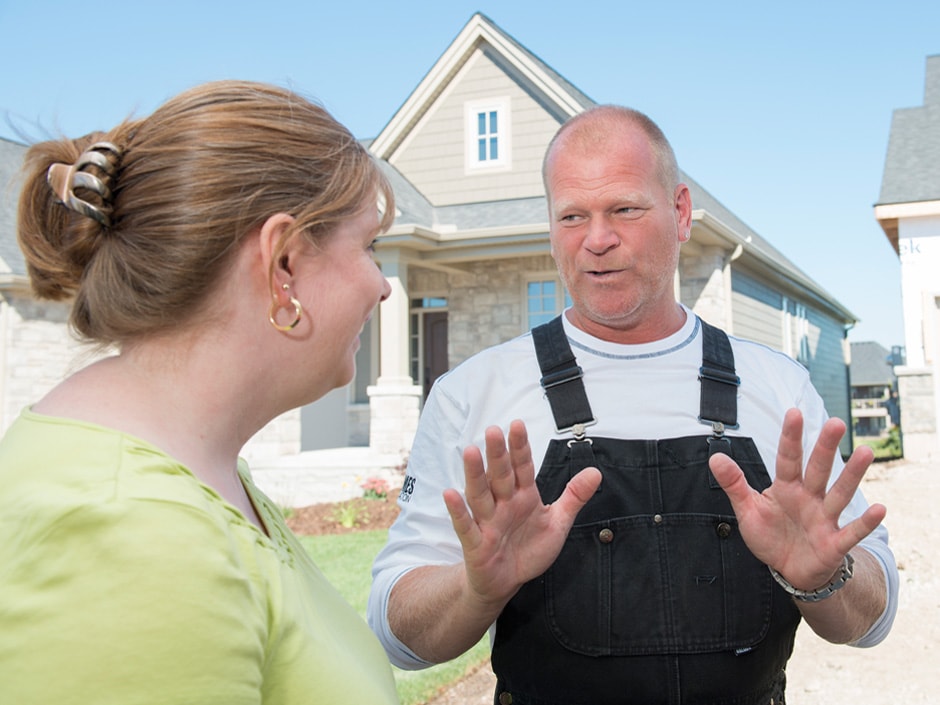
A Building Permit is insurance. It’s a safety net. And that’s worth every penny.
Moving into a renovated home
If the house in question has had major renovations done in the past couple of decades–things like a bathroom added or moved, a second storey added, an addition built on, structural walls removed or basement walls underpinned, then there should be a record at the building department that shows permits were taken out.
Just as important, it will show that those permits were signed off on by a Building Inspector and were officially closed. A permit demonstrates that the renovations—if any–were done correctly. That’s a big deal.
READ NEXT:
